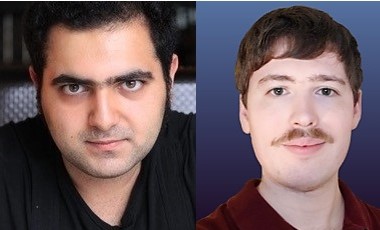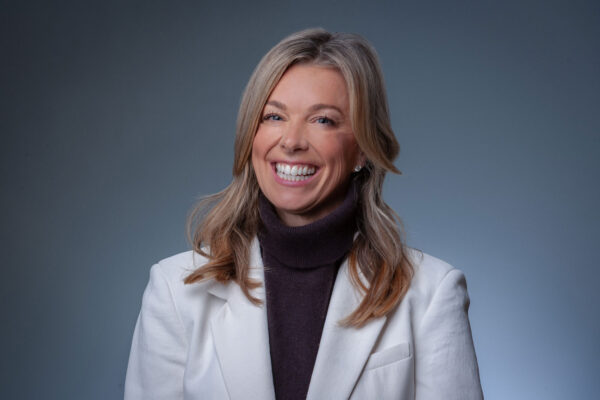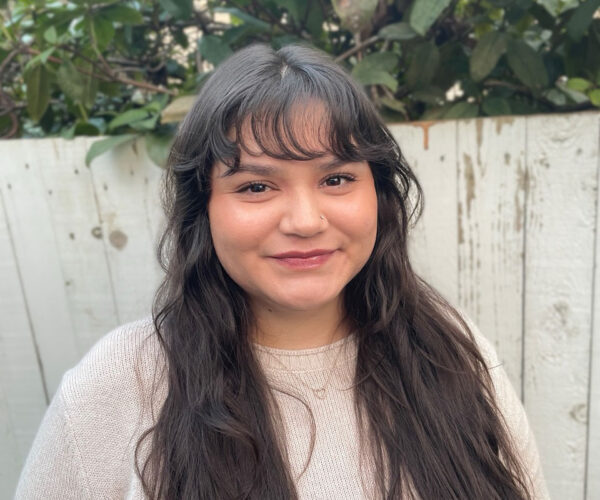
Ali Jahangirnezhad is developing a model that accounts for the properties and dynamics of sound. Joshua Sterner is working on how to preserve the privacy of data used to train a machine-learning model while also keeping the model private.
These two Computer Science & Software Engineering seniors received Mary Gates Research Scholarships to support their work. Both are mentored by Dr. Afra Mashhadi, assistant professor in the School of STEM. Dr. Shima Abadi, assistant professor in STEM, also mentors Jahangirnezhad.
“I have been searching for a way to publicly demonstrate my research skills,” said Jahangirnezhad. “I found it through the Mary Gates scholarship.”
Learning and adapting
Initially drawn to sound as a violin player, Jahangirnezhad has expanded his knowledge of sound and hopes one day to use this knowledge within the medical community. In the last few years, he has learned more about different ways in which sound can be used as a means of diagnosis, including not just listening to a heartbeat to diagnose heart disease but also listening to a cough to diagnose COVID-19.
Inspired by this, he is developing a learning algorithm that can work with sound or any sequence data. Essentially, his algorithm is being designed to learn and analyze the features of sound.
What sets Jahangirnezhad’s research apart is that he is trying to make an algorithm learn not only how to reduce data into one simple visual representation but also adapt any representation that best fits with the sound’s category. “This is known as Deep Embedded Clustering,” said Jahangirnezhad. “It has been used before successfully but not with the type of network I am developing.”
Jahangirnezhad is testing his algorithm on underwater sounds from whales, and if all goes according to plan the results should be generalizable to any other audio data — including heartbeats and coughs.
Innovative thinking
Sterner’s research is focused on preserving the privacy of data used in training a machine-learning model while also keeping the model private. He explains that homomorphic encryption — a form of encryption allowing one to perform calculations on encrypted data without decrypting it first — can be used to protect a machine-learning model during federated learning.
“Federated learning,” he explained, “is a machine-learning technique that trains an algorithm across multiple decentralized devices holding local data samples without exchanging them.
“My goal is to get a sense of whether homomorphic encryption can be used on mobile devices for federated learning,” he said. “Theoretically, it can be.”
In general, machine-learning privacy is an important area of research, but Sterner said that it is especially relevant now given many pressing issues related to technology and privacy. “It is not as though this research will create a magical solution where everyone starts respecting people’s privacy,” he said, “but I hope it will make it easier by providing a means to protect model data as well as training data.”
Making an impact
Both Sterner and Jahangirnezhad plan to continue developing their projects after the scholarship support ends.
Jahangirnezhad hopes that his algorithm will be used in the medical community. “Sound data is an easy form of data to collect — and is more financially feasible,” he said. “It has also been underutilized, and I hope my algorithm can make sound data more accessible for health professionals and people in general.”
Likewise, Sterner hopes his research will contribute to others in the field. His goal is to give model owners more control over the machine-learning models that they train by using privacy-preserving techniques, especially during the training process.
Sterner and Jahangirnezhad will be presenting their research at the UW Undergraduate Research Symposium in May.
The Mary Gates Research Scholarships are competitive scholarships intended to enhance the educational experience of undergraduate students at the University of Washington while they are engaged in research guided by faculty. Established in 1995 by Bill and Melinda Gates, the scholarship honors the memory of Bill’s mother, Mary Maxwell Gates (1929-1994).


